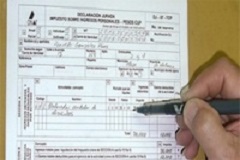Action plan to reduce tax defaults in legal entities
Keywords:
tax administration, taxesAbstract
The work proposes an action plan to reduce tax defaults in Legal Entities, a sector that represents more than 90% of the total Revenue Collection from the State Budget; In addition, the main causes of the increase in debt determinations are exposed, as a consequence of the increase in tax defaults, for which different methods and techniques were used as resources of the sciences. It concludes the investigative work with the proposed solution, which consists of an action plan, which will help to reduce tax breaches in Legal Entities. This tool will facilitate the development of the improvement process in which the National Tax Administration Office is located.
References
Asamblea Nacional del Poder Popular. (1994). Ley No. 73 Del Sistema Tributario (Ordinaria No. 008 de 5 de agosto de 1994 ed.). La Habana, Cuba: Gaceta Oficial de la República de Cuba.
Asamblea Nacional del Poder Popular. (2012). Ley No. 113 Del Sistema Tributario (Ordinaria No. 33 de 20 de agosto de 2012 ed.). La Habana: Gaceta Oficial de la República de Cuba.
Partido Comunista de Cuba. (2017). Lineamientos de la Política Económica y Social del Partido y la Revo-lución (VI Congreso del Partido Comunista de Cuba. ed.). La Habana, Cuba: Editora Política.

Downloads
Published
How to Cite
Issue
Section
License
Copyright (c) 2017 Licmarie Cabrera Alonso

This work is licensed under a Creative Commons Attribution-NonCommercial-NoDerivatives 4.0 International License.
- Sending a contribution to the Cuban Magazine of Finance and Prices (RCFP) implies a non-exclusive assignment of rights, which includes: Reproduce the Article in whole or in part and communicate the Article to the public in print or electronic format, combined or not with the works of third parties, such as by making the Article available to the public via the Internet or any other network, as part of a database, with on-line or off-line access, for use by third parties; Translate the Article into other languages and release the translation to the public; Create adaptations, summaries, or excerpts of the Article and other derivative works thereof, and exercise all of your rights in such adaptations, summaries, excerpts, and derivative works; Include the Article, either in its translated, adapted or summarized version, totally or partially, in a computerized database and make it available to third parties; Include the Article, totally or partially, either in its translated, adapted or summarized version, in a selection or compilation of texts; Rent or lend the Item to third parties; Reproduce the Article by means of reprography, without prejudice to legal limitations.
The Author of articles published in the Cuban Magazine of Finance and Prices (RCFP) may exercise the following rights:
- Reproduce the Article, totally or partially, and disseminate its content or make it available to the public, in printed or electronic format, as part of a teaching content or as a compilation, for use in the academic or research field in the institution to the one to which the Author belongs or in those institutions to which he belongs.
- Publish the Article on the Internet or authorize the Author's institution (or any other appropriate organization) to do the same, immediately from the date of publication of the Article in the journal: within the institution's closed network (p. eg, the intranet); or in publicly accessible institutional repositories or centrally organized repositories, provided that a link to the Article is included on the journal's website.
- Grant to the Author's own institution (or any other appropriate organization) the authorization to reproduce the Article in order to prevent its deterioration or, if the original is in an obsolete format or the technology to use it is not available, in order to ensure that the Article remains available for teaching or research purposes;
- Present the Article at a meeting or conference, and distribute copies of the Article to those attending the event.
- Grant end users at the Author's own institution (or any other appropriate organization) permission to copy, use, transmit, and publicly perform the work and to create and distribute derivative works.



